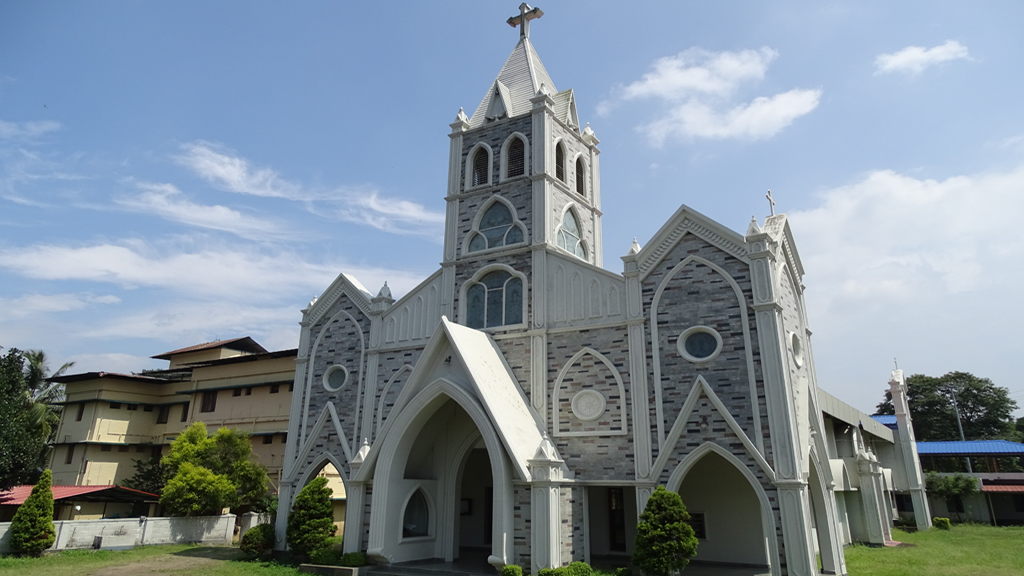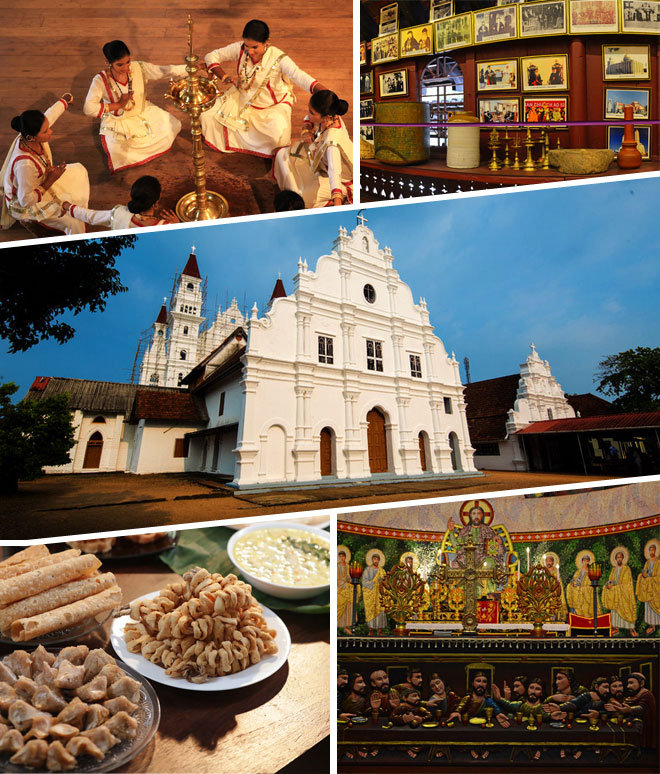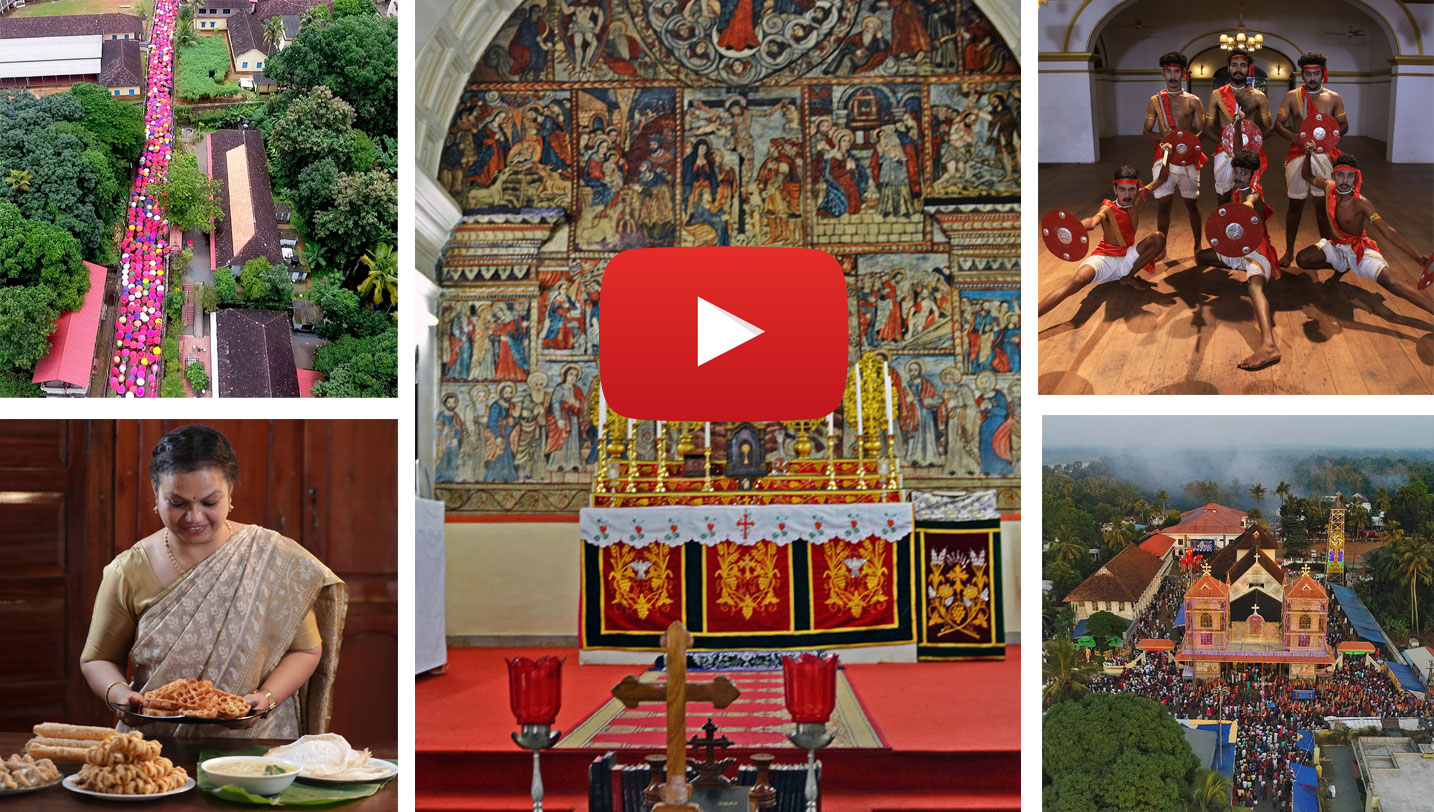The scenario before the arrival of Gama
After the death of the Christian King of Villarvattom, who left no male heir, the fiefdom was annexed to the Perumpadappu swaroopam or the Kingdom of Kochi. There are indications that a Christian King who lived in Udayamperoor had expired by the 15th Century. Certain documents say that when the Portuguese reached Kerala, there were 75,000 Christians and 25,000 Christian warriors here. The Perumpadappu Swaroopam had protected the Christians. It had protected their community rights and respected the heads of their church too. Historians have recorded how the King of Kochi had supported Bishop Mar Abraham.
Even before the arrival of the Portuguese, the St. Thomas Christians had ships and trade links with foreign countries. During the first visit of da Gama, he had met Syrian Christian sea traders near Melinda port on the east coast of Africa. Arab traders held their sway around Kodungalloor during this time and the Christians were confined to the south. During the 15th century, there was a popular notion in Europe that a Christian King lived in either Africa or India and his name was Prester John. When da Gama sailed to India, Manuel, the King of Portugal, gave him a letter to be delivered to King Prester John. This notion was further confirmed by the fact that the travelers who reached Kerala in 1498 met a traditional Christian community here. The extinction of the Villarvattom King, who was a Christian, could also be read along with this. When the ship of da Gama reached Kozhikode, his followers said: “We came in search of the spices of the Christians” (Camoes, Luis de, The Lusiads 7:24). “You have reached India, which has rich and progressive people, gold that bedims eyes, precious stones, perfumes and pure spices,” said the guide of Vasco-da-Gama (Camoes, Luis de, The Lusiads 7:31).

Holy Trinity English Church, Sultanpet
Colonial religion:
The Catholic missionaries who reached Kerala along with the navy focused their attention on the spirituality of the traditional St. Thomas Christians who were also called Nasrani Christians. However, the Portuguese had to strive hard for a century to Latinize the St. Thomas Christians scattered all over Kerala. The attempt finally succeeded at the Synod of Diamper held at Udayamperoor in 1599. Till the authority of the Padroado was annulled in 1838, the Portuguese tried to impose their religious practices on the St. Thomas Christians.
Portugal took over the responsibility of protecting the Catholic Church which was rocked by the Protestant movement that rose in Germany in 1517. The Catholic Church watched the movement with great seriousness. News about the Protestant movement reached Kochi in 1521 and Martin Luther had some followers in Kerala too. But this did not have any impact on the St. Thomas Christians of Kerala.
- The Tradition of St. Thomas
- The arrival of St. Thomas
- Seven and half Churches
- Post St. Thomas arrivals
- The scenario before the arrival of Gama
- Missionary Activities
- Descriptions of St. Thomas Christians
- The Padruodo
- Portuguese Forts
- Synod of Diamper
- Latinization of Churches
- Coonan Cross Oath
- Post Koonan Kurissu
- Establishment of churches
- Starting of Seminaries
- Anglo Indians
- Migrations to Malabar

